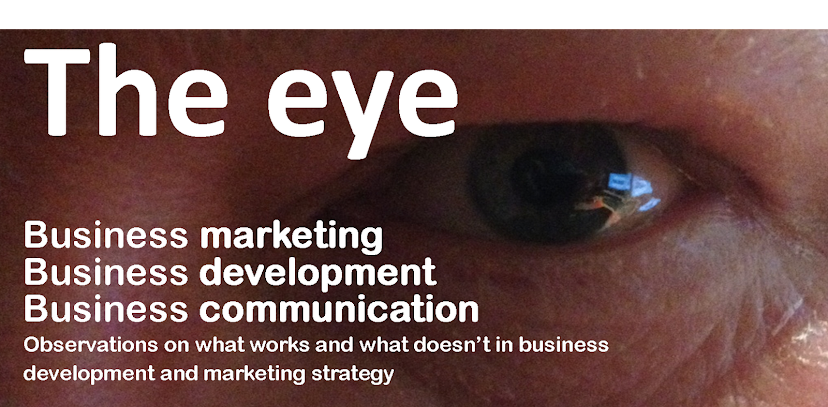Many businesses I know feature one, or a small group of business leaders, who have been largely responsible for making the business today what it is. They are intuitive networkers and know how to identify future opportunities, clients or strategic growth pathways. They’ve often been in the business for a long time and the marketplace sees the business closely associated with their drive and personality.
A telling characteristic of this sort of business is that it is often named after them. If singular, it suggests a sole rainmaker. If named after a group, it suggests a group – one that may no longer exist but one which first established the business and handed it on to a next gen of leaders.
What I find interesting is that quite often the rainmakers aren’t necessarily the most technically competent in their particular profession. The very best accountants, lawyers, engineers, architects, project managers and so on may have the edge in technical skills, and they may add a lot to the value of the business, but they may not have the skills to bring in new work. Their preference may be to continue to practice the skills they first trained for, and to continue to push the boundaries of technical understanding within their chosen field.
It makes sense if you think about it. Our university or field education focuses on the technical aspects of a particular profession. This is what first attracted us to it in the first place. We didn’t go into marketing or business courses because, quite deliberately, we didn’t think those things suited our skills or interests. Why expect that to change?
In some cases though, the rainmaker reaches a point in their technical and professional life where perhaps they begin to enjoy running and growing the business as much - if not more - than actually doing the work. They thrive on client engagement and leveraging that for further opportunities. They are not satisfied when a project is completed and a client is happy – they are asking for more – more opportunities, what the client has on next, do they know of any similar projects through other potential clients. While happy to supervise and mentor projects that come into the business, their preference starts to drift to winning more and more business, growing staff numbers and workflow.
This can create a problem for rainmaker businesses because clients are sometimes drawn only to the persona of the individual around whose reputation the business is built. They want that particular individual, or group of individuals, to be hands on with their project. They don’t want to be ‘handed down’ a level or two, notwithstanding the supervision, to a more junior (or less well known) group of professionals. Even if that group might be more technically competent than the rainmaker, clients demand that the rainmaker is the one who is hands on with their job. The rainmaker at this point is conflicted: they know that without their concerted efforts to run the business and win new business, the business as a whole will start to flounder. They can’t really devote the time to being the ‘hands on’ professional but clients are not letting them delegate.
There is no easy answer to this but from what I’ve observed here are some ideas worth exploring:
- Think of recruiting talent based on their future rainmaking skills, more so than their technical competence. A straight ‘A’ graduate with an impeccable academic and work record might sound appealing but if you already have plenty of technically competent people, try looking for someone with perhaps broader skills. Someone with the potential to start getting out there and helping you win work and who shows the personality and energy to do so, could be the missing piece you need.
- Shine more light on your next generation staff. One way to relieve the burden of clients only wanting to deal with you is to demonstrate how clever your next gen of professionals really are. This means not taking the credit for what they do, and can mean reducing your profile in favour of profiling them. Some rainmaker business leaders may say this is what they want, but many also find it hard to do.
- Institutionalise the marketing and BD function. By this, I mean make it a discipline all staff need to understand – much like the monthly timesheets or accounts. They may not love it, but they do at least need to appreciate the importance of it. Someone may start to stand out from the pack as a future rainmaker because they actually enjoy the business marketing and BD function as much as their own professional field.
- Formally reward people for their outreach, networking and rainmaking efforts. Attending functions and events and learning about what projects are doing the rounds before they hit the papers is what got you to this point – so you should encourage your staff in the same way. Don’t be too parsimonious with the networking events budget but encourage those who want to lead in this field to spend time doing so. Some simply won’t want to, so don’t force them. But those who do should be encouraged to ‘get out there’ more often.
- At some point, you might even need to look at changing the name of the business. It it’s named after you, or a group of soon-to-retire partners, it’s going to be difficult for a next gen to lead that sort of business. But you don’t want to do this until you’re happy your succession plan for rainmaking is in good hands.
None of these are easy decisions and however you approach the issue it’s a long term commitment that could easily form part of a routine board or management meeting agenda. One thing’s for certain: leaving these decisions until the last minute is not the answer.

